|
EMSA
- EUROPEAN MARITIME SAFETY AGENCY
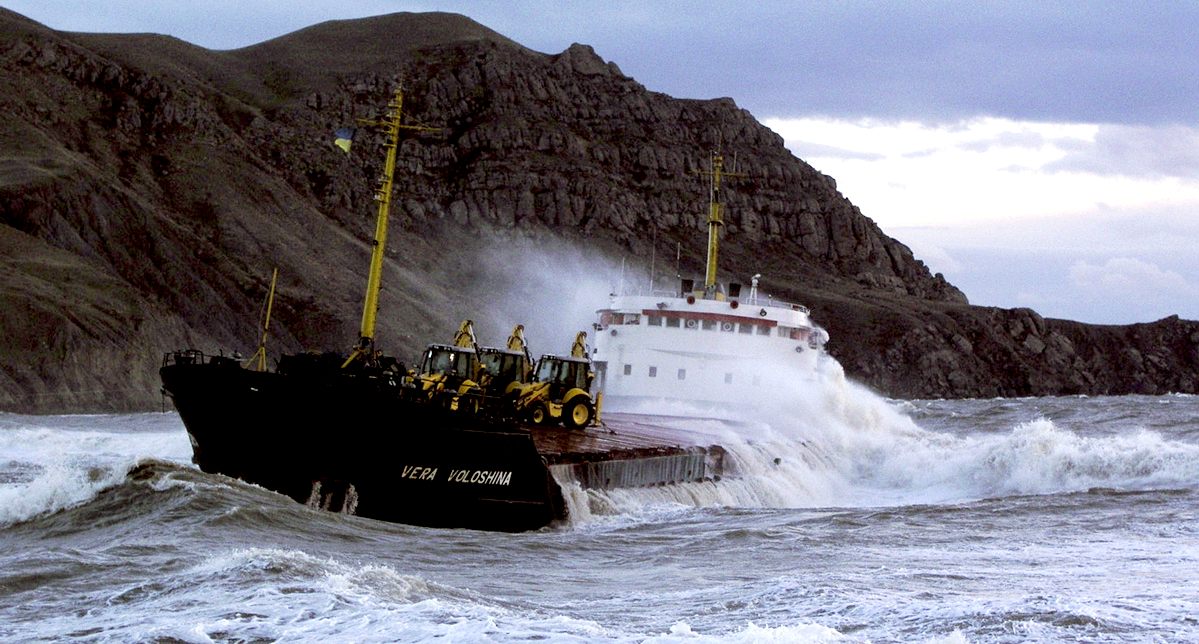
SHIPWRECKS -
The Russian-owned "Vera Voloshina" cargo ship is seen here after running aground during a heavy storm, near the Black Sea resort of Sudak, Ukraine, Sunday,
November 11 2007.
MARINE
POLLUTION
Why
is this important?
Accidental
oil spills and cleaning operations are the main source of
pollution from ships, placing enormous demands on the national
authorities responsible for response and clean-up operations. Europe
is the world's largest market of crude oil imports,
transported from and to Europe mainly by sea. Inevitably, some
of this makes its way into the sea, whether by accident or
resulting from ship operations. "Prestige"
and "Erika" are examples of the frightening
environmental damage that can be caused by accidents of large oil
spills.
How
are EMSA helping?
Since
1978, the EU has played a vital role in the response to marine
pollution and today its role has become even greater with the
response coordination ensured by its Emergency
Response Coordination Centre and with marine
pollution preparedness and response services provided by
the European
Maritime Safety Agency (EMSA).
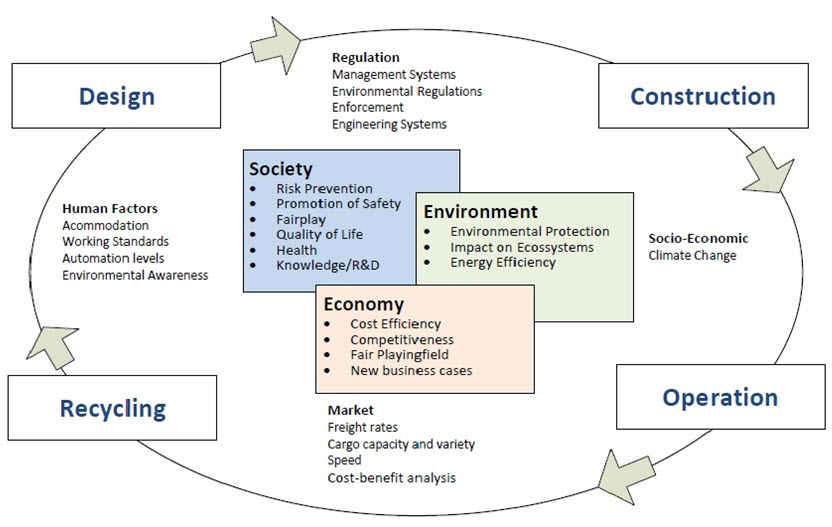
SHIP RECYCLING
Background
The EC report that, worldwide, around 1000 large end-of-life ships are dismantled every year to recycle the
steel and equipment. Most of this ship recycling takes place in South Asia, often on tidal beaches and under dangerous conditions which lead to health risks and extensive pollution of coastal areas. In fact, old ships contain many hazardous materials including asbestos, polychlorinated biphenyls (PCBs), tributyl tin and large quantities of oils and oil sludge.
Global action
The Hong Kong International Convention for the Safe and Environmental Sound Recycling of Ships (HKC) was adopted on 15 May 2009 by an IMO Diplomatic Conference. This Convention covers the design, construction, operation and preparation of ships so as to facilitate a sustainable ship recycling without compromising the safety and operational efficiency of ships. It also regulates the establishment of an appropriate enforcement mechanism for ship recycling, incorporating certification and reporting requirements. From 2011, the IMO developed several Guidelines to assist the States Parties in the early implementation of the Convention’s technical standards.
EU action
The EU Ship Recycling Regulation (1257/2013) entered into force on 30 December 2013 to reduce the negative impacts linked to the recycling of EU-flagged ships, especially in South Asia. The Regulation is built upon the Hong Kong Convention and aims to implement the Convention quickly, without waiting for its ratification and entry into force. To speed up the formal entry into force of the Hong Kong Convention, the Commission proposal for a Ship Recycling Regulation was accompanied by a draft decision requiring Member States to ratify the
Hong Kong Convention.
The Ship Recycling Regulation applies to large commercial seagoing vessels flying the flag of the EU Member State, and to ships flying the flag of a third country calling at EU ports or anchorages. In order to ensure legal clarity and avoid administrative burdens, ships flying the flag of a Member State covered by the new legislation would be excluded from the scope of the Waste Shipment Regulation (EC) 1013/2006.
According to the new rules, the installation or use of certain hazardous materials on ships such as asbestos, ozone-depleting substances, PCBs, PFOS, and anti-fouling compounds, will be prohibited or restricted. Each new ship flying the flag of an EU Member State (or a ship flying a flag of the third country calling at EU port or
anchorage) will be required to have on board an inventory of hazardous materials.
EMSA's role
The Agency has been involved in the process since March 2006, providing technical assistance on this issue. EMSA has participated in international meetings, inter alia in IMO meetings (MEPC, ship recycling Working Groups, Hong Kong Diplomatic Conference), Basel Convention meetings, international conferences on ship recycling, etc. and coordinates the EC's submissions to the IMO Correspondence Group.
The Agency commissioned a study (finalised in September 2008), which provided a model of an integrated management system (IMS) for the certification of ship recycling facilities addressing safety, health and environmental issues.
EMSA also organised workshops in its premises in Lisbon, in order to:
*
stimulate an exchange of views among experts on current development with regard to ship dismantling and as such to improve the level of information on current practices and solutions at EU level;
*
provide a platform for discussion in view of the relevant international meetings related to the Convention on the safe and environmentally sound recycling of ships.
EMSA CONTACTS
European Maritime Safety Agency
Praça Europa 4
Cais do Sodré
1249-206 LISBOA
Portugal
External Communications
Ann Macpherson (email)
(Communication Officer)
Tel: +351 21 1209 281
Email: information@emsa.europa.eu
EMSA Secretariats
General Affairs
Tel: +351 21 1209 200
Fax: +351 21 1209 210
Visits & Inspections
Tel: +351 21 1209 204
Fax: +351 21 1209 215
Ship Safety
Tel: +351 21 1209 205
Fax: +351 21 1209 216
Marine Environment & Port State Control
Tel: +351 21 1209 251
Fax: +351 21 1209 261
Vessel Traffic and Reporting Services
Tel: +351 21 1209 206
Fax: +351 21 1209 217
Pollution Response Services
Tel: +351 21 1209 207
Fax: +351 21 1209 218
Satellite Based Monitoring Services
Tel: +351 21 1209 208
Fax: +351 21 1209 219
Emails: MaritimeSupportServices@emsa.europa.eu
csn-info@emsa.europa.eu
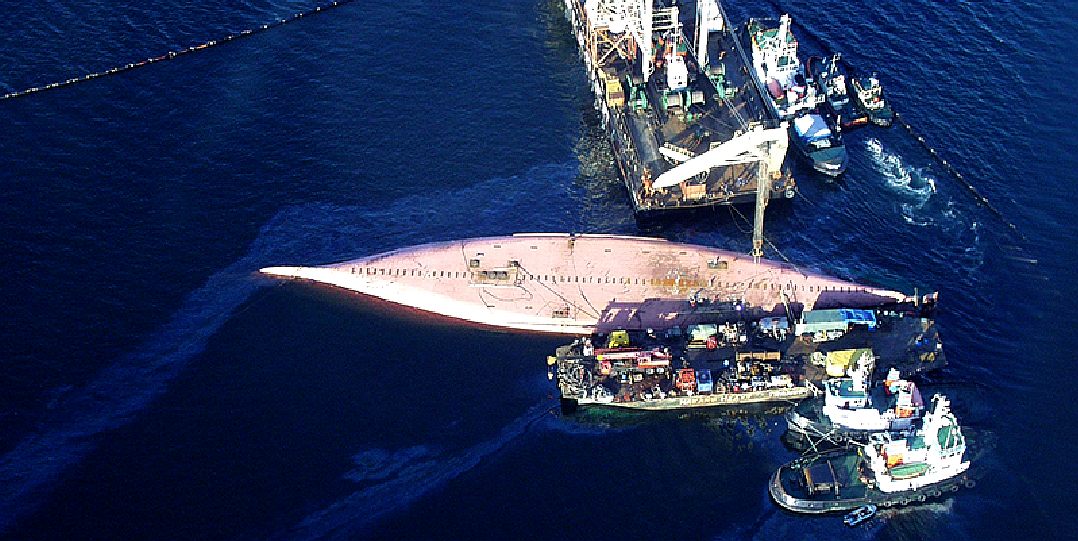
HELCOM -
The Baltic Marine Environment Protection Commission, usually referred to as HELCOM, is an intergovernmental organization of the nine Baltic Sea coastal countries and the European Union working to protect the marine environment of the Baltic Sea from all sources of pollution and to ensure safety of navigation in the region. Since 1974, HELCOM has been the governing body of the 'Convention on the Protection of the Marine Environment of the Baltic Sea Area', more commonly known as the Helsinki Convention.
Heli Haapasaari
Finnish Environment Institute (SYKE)
Chair of HELCOM Response Group
Tel: +358 40 1793050
E-mail: heli.haapasaari(at)environment.fi
Hermanni Backer
Professional Secretary for Maritime, Response and Maritime Spatial Planning
HELCOM
Tel: +358 46 8509199
E-mail: hermanni.backer(at)helcom.fi
MANDATE & PRINCIPLES
EMSA's mandate is to provide
SUSTAINABLE
SHIPPING
Sustainable Shipping is a holistic management concept for sustainable development, applied to the shipping sector, incorporating environmental and social responsibility. Sustainability includes three main pillars: Environment, Society and Economy and the development of Sustainable Shipping is the result of the strengthening of these three pillars.
Different factors affect the development of sustainability in shipping, from regulatory to socio-economic factors, market related aspects and human factors, which all together contribute in different ways to the development of these three pillars. Since many different stakeholders are involved in the process, it follows that one of the critical factors in supporting of Sustainable Shipping is the understanding of all parties concerns, needs and expectations. Constructive dialogues, partnerships, synergies, joint R&D, are some of the key instruments in developing Sustainable Shipping.
Within the European Union framework, a special forum dedicated to Sustainable shipping was established by the “Commission Decision of 24 September 2013 on setting-up the group of experts on maritime transport sustainability” - The European Sustainable Shipping Forum (ESSF). The following has contributed to the creation of the ESSF:
-Transport sustainability identified as an important part of a common transport policy, in Article 90 of the Treaty on the Functioning of the European Union.
- The important role of maritime transport towards achieving more sustainable EU transport, as identified by the White Paper Roadmap to a Single European Transport Area – "Towards a competitive and resource efficient transport system".
- The need to establish a stakeholder’s platform that could facilitate technical dialogue and cooperation amongst all interested
parties, as underlined by the Commission staff working document "Pollutant emission reduction from maritime transport and the Sustainable Waterborne Transport Toolbox".
- The need to develop appropriate measures including those identified in the Commission's staff working paper of 16 September 2011 entitled "Pollutant emission reduction from maritime transport and the sustainable waterborne transport toolbox" promoting compliance with the environmental standards of the Sulphur Directive, and minimise the possible negative impacts.
The Agency supports international & EU initiatives on clean and sustainable shipping in the following ways:
- Developing alternative and cost-effective fuel technologies for shipping;
- Reducing fuel consumption for existing ships and improving energy efficient of engines and hulls for new builds. These new global measures will improve the efficiency of ships, and at the same time reduce greenhouse gas emissions;
- Implementing the IMO mandatory measures for a global industry such as the EEDI (Energy Efficiency Design Index) for new ships, and the Ship Energy Efficiency Management Plan (SEEMP) for all ships;
- Reduction of ship air pollution, notably sulphur (SOx and SO2), nitrogen (NOx) and particulate matter (PM) emissions; and,
- Developing legislation to ensure ship-generated waste can be delivered to port waste reception facilities efficiently.
EMSA participates in IMO Committees and Correspondence Groups (MEPC Correspondence Group on EEDI review, Correspondence Group on Further Energy Efficiency measures) and has collaborated with DG MOVE in the development of the Individual Ship Performance Indicator - ISPI concept. Moreover, the Agency cooperates with relevant research institutions and/or pilot projects (e.g. FMI - Estimating 2011 emissions within EU waters) and is providing technical assistance to the Commission proposal on deliberations for the Regulation Monitoring, Reporting and Verification (MRV) of Ship CO2 Emissions.
BECOME
A PARTNER
To
become a humanitarian partner of the European Commission,
organisations must apply for a Framework Partnership Agreement
(FPA).
Partners
are selected based on specific criteria and legal and
financial requirements, as well as quality standards. This
helps ensure that partnerships are of value to both the
European Commission and the applying organisation. The legal
and suitability criteria are set by the Regulation
on humanitarian aid (RHA), the new
Financial Regulation applicable to the general budget of the
European Communities (FR) and its Implementing Rules.
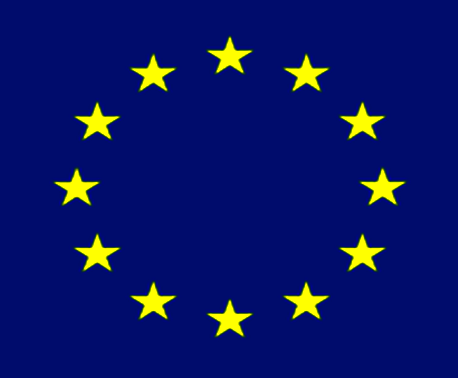
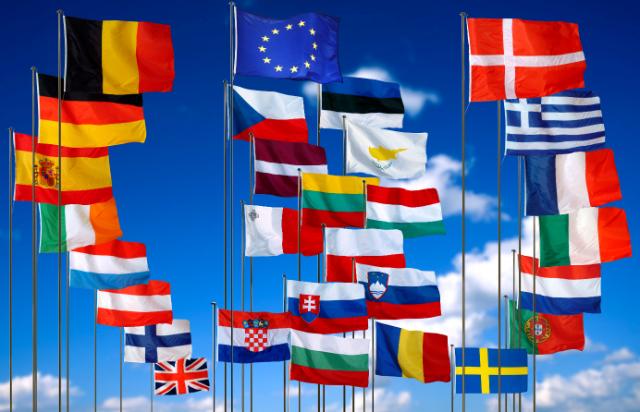
CONTACT
ECHO
European Commission
Directorate-General for humanitarian Aid and Civil Protection - DG ECHO
Unit responsiblefor Partner Support
B - 1049 Brussels
Belgium

LINKS
& REFERENCE
http://www.emsa.europa.eu/
http://ec.europa.eu/echo/
http://www.helcom.fi/
http://ec.europa.eu/echo/news/boost-cooperation-maritime-emergencies_en
https://en.wikipedia.org/wiki/Directorate-General_for_European_Civil_Protection_and_Humanitarian_Aid_Operations

MAN
MADE DISASTER - Humans have been continuously dumping
plastic and other toxic waste in the seven seas for over 100
years. The plastic quotient now forms a major part of marine
pollution, to equal oil spills in the effect on ocean life.
The
Cleaner Oceans Foundation is a not for profit Non Governmental
Organization (NGO). Cleaner Oceans rely entirely on
donations from concerned citizens of Planet
Earth at time of publication in
January 2017.
This
website is copyright © Cleaner
Oceans Club Ltd (COCL) (Company No: 4674774)
January 2017
Solar
Studios, BN271RF, United Kingdom.
COCL
is a charity without share capital. The name Miss
Ocean™ is a
trade mark
of the Cleaner Oceans
Foundation™. The name SeaVax™,
is a trade
mark used under license. Site
Navigator
|





